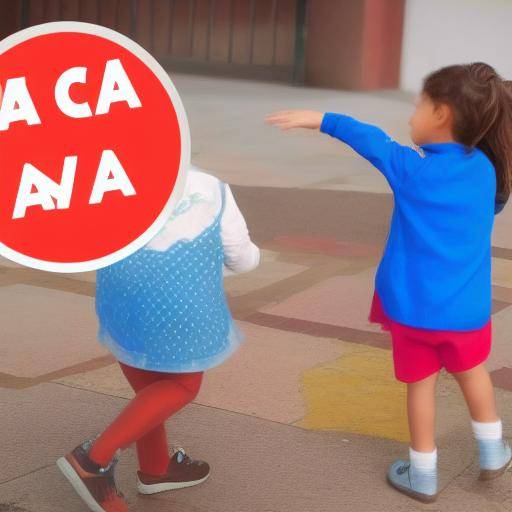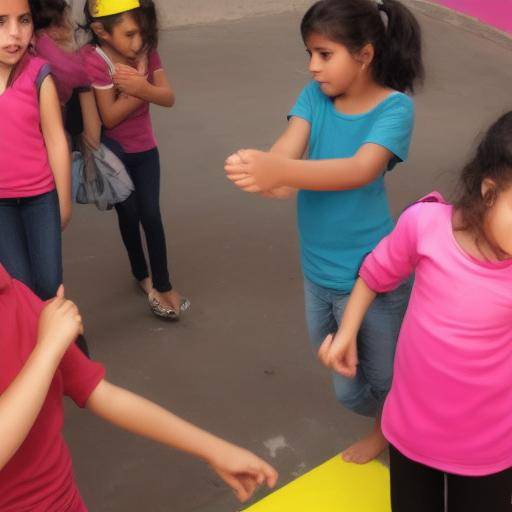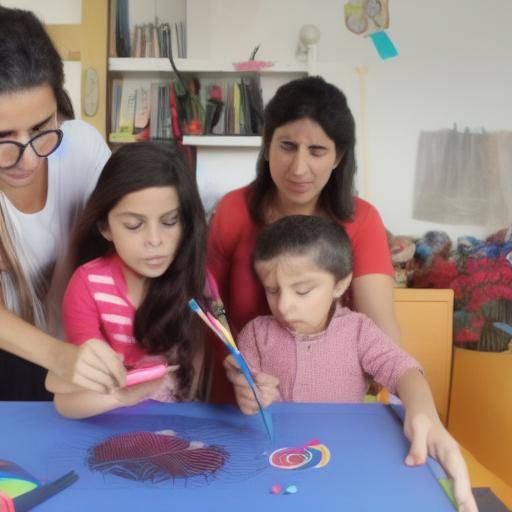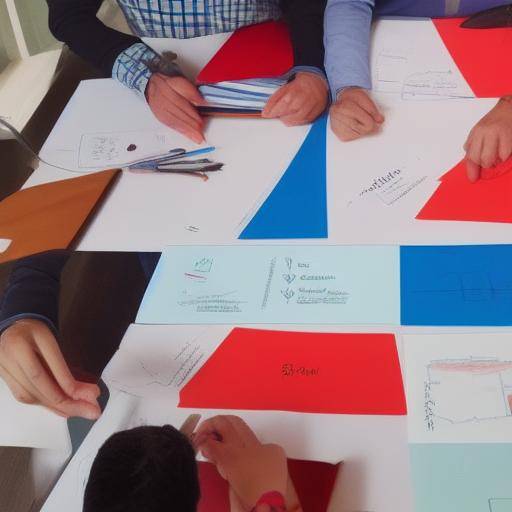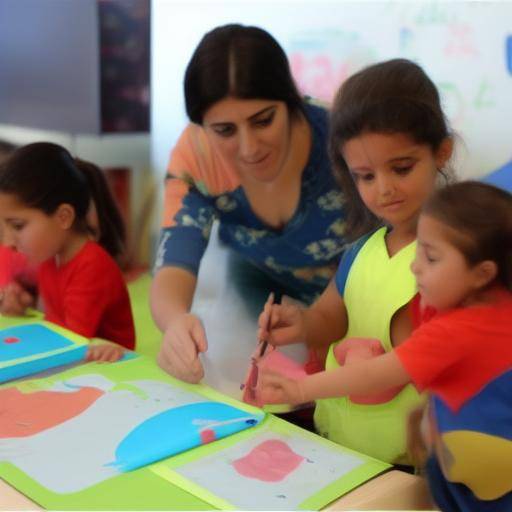
In the education of children, autonomy is a fundamental aspect that contributes to their comprehensive development. Promoting autonomy from an early age helps them acquire life skills, make informed decisions and become more independent. In this article, we will explore various activities and strategies that parents, teachers and caregivers can implement to promote autonomy in children. From practical activities to expert councils, we will discover how to cultivate autonomy effectively and positively.
Introduction
Promoting autonomy in children is a key process in its development. Through well-designed activities and experiences, children can acquire skills that will enable them to unfold independently and confidently in the world around them. In this article, we will explore specific activities and strategies that will help to promote autonomy in children, contributing to their personal and emotional growth.
History and Background
Since early childhood studies, the importance of fostering autonomy for children has been recognized. During the twentieth century, theories such as Jean Piaget and Lev Vygotsky helped to understand the cognitive and social development of children, highlighting autonomy as a crucial skill. Over time, research has shown that autonomy not only benefits the individual development of children, but also their self-esteem, creativity and ability to solve problems.
Deep analysis
Fostering autonomy in children entails a number of benefits, but also poses challenges. While enabling them to develop decision-making and responsibility skills, it can also generate concerns about parental safety and control. It is essential to find a balance that promotes autonomy without compromising the protection and care of children.
Comprehensive review
The activities that foster self-government in children range from household tasks appropriate to their age to decisions about their own time and space. Providing limited options, allowing them to assume responsibilities and encouraging problem solving are effective strategies to promote autonomy. In addition, it is important to recognize that the promotion of autonomy varies at different stages of development, from early childhood to adolescence.
Comparative analysis
Throughout the process of fostering autonomy, it is essential to compare and contrast different activities and approaches to identify the most effective strategies. Some activities, such as preparing their own lunch, can be more suitable for certain ages, while others, such as allowing them to choose their clothing, are appropriate in later stages. Understanding these differences is crucial to personalizing the experiences of fostering autonomy for each child.
Practical Tips and Accessible Recommendations
To foster self-government in children, it is important to provide them with an environment that gives them the opportunity to make decisions and assume responsibilities appropriately for their age. Some strategies include establishing predictable routines, fostering conflict resolution and teaching decision-making skills. These practical approaches will contribute to strengthening the autonomy of children on a day-to-day basis.
Industry Reflections and Expert Reviews
Child development experts agree that the promotion of autonomy in children is essential for their overall well-being. Providing them with the opportunity to experience independence in a safe and guided manner is crucial to their emotional and social development. Listening to the perspectives of experts in the field can provide a deeper understanding of how to promote autonomy in children effectively.
Case Studies and Real Life Applications
Through case studies, it is evident how different approaches to fostering autonomy can have a positive impact on the development of children. Considering concrete examples of how these activities have influenced the personal growth of children can illustrate the benefits and challenges associated with the promotion of autonomy. From allowing them to make decisions about their activities to involve them in family planning, case studies reveal valuable lessons on how to promote autonomy effectively.
Future Trends and Predictions
As society and education evolve, it is important to consider future trends that may influence the promotion of autonomy in children. The integration of technology, more student-centred educational approaches and changes in family dynamics are just some of the trends that can impact on the way in which autonomy is fostered in the future. Anticipating these trends helps to prepare to adapt strategies and activities to promote autonomy accordingly.
Conclusions
In short, fostering autonomy in children is a crucial process that contributes significantly to their personal and emotional development. Through well-designed activities and strategies, children can acquire valuable skills that will enable them to unfold independently and confidently. By providing them with opportunities to make decisions, assume responsibilities and solve problems, adults play a key role in the development of children ' s autonomy.
Frequently asked questions
What are the best activities to promote autonomy in young children?
Activities that promote autonomy in young children often focus on simple and safe tasks, such as dressing alone, helping in the preparation of simple meals or collecting their toys after playing.
How to balance the promotion of autonomy with the necessary supervision to ensure the safety of children?
It is essential to establish clear limits and provide adequate monitoring to ensure the safety of children while fostering their autonomy. This implies finding a balance between giving them independence and protecting their well-being.
How to address the resistance of children to assume more responsibilities?
It is common for children to show initial resistance by assuming new responsibilities. It is important to address this resistance with empathy, patience and positive motivation, recognizing its efforts and celebrating its achievements.
To what extent can schools contribute to the promotion of autonomy in children?
Schools play a crucial role in fostering self-government in children, providing opportunities for decision-making, promoting self-regulation and promoting problem-solving through projects and practical activities.
How can we promote autonomy in children with special needs?
Promoting autonomy in children with special needs may require tailored and personalized approaches. It is essential to work in collaboration with professionals and caregivers, recognizing and supporting the unique skills of each child.
What is the long-term impact of fostering autonomy in the lives of children?
Fostering self-government in children is linked to further development of problem-solving skills, self-esteem and perseverance, which can contribute to their personal and professional success in the future.
Concluding, fostering autonomy in children is an enriching process that contributes significantly to their growth and development. Through carefully designed activities, effective strategies and a care and guidance-centred approach, adults can play a crucial role in developing basic skills in children.





